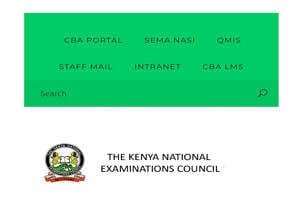KNEC Offers Final Resit Opportunity for P1 Teachers with Pending Referrals


Introduction
The Kenya National Examinations Council (KNEC) serves a pivotal role in the education sector of Kenya, particularly in the administration and regulation of national examinations for various educational levels, including the training and assessment of teachers. Established to ensure the integrity and standardization of educational assessments, KNEC has evolved to address the diverse needs of the Kenyan education system. Among its responsibilities is the facilitation of examinations for pre-service teachers, notably those pursuing the Diploma in Primary Education, commonly referred to as P1 teachers.
In the context of the evolving education landscape, KNEC acknowledges the challenges faced by teachers who have yet to fulfill their examination requirements due to pending referrals. These referrals often stem from academic challenges that can hinder the progression of educators in their careers. Recognizing this, KNEC has announced a final resit opportunity for P1 teachers who need to address these pending referrals. This initiative is significant as it not only provides a second chance for these educators to complete their qualifications but also underscores KNEC’s commitment to supporting teachers in their professional development.
The provision of a final resit opportunity is a critical step in bridging the gap for P1 teachers, allowing them to pursue their teaching careers with the necessary certifications. The decision reflects an understanding of the various educational challenges that may impede teachers from successfully completing their examinations on the first attempt. By facilitating this opportunity, KNEC is not only enhancing the professional journey of individual teachers but also contributing to the overall quality of education in the country. This chance may ultimately empower educators to better serve their communities and positively impact the learning experiences of students across Kenya.
Background Information
The Primary Teacher Education (P1) qualification in Kenya is fundamental for individuals aspiring to become teachers in primary schools. The Kenya National Examination Council (KNEC) administers the examinations that determine whether a candidate meets the standards required to obtain this qualification. Passing these exams is critical, as it not only validates a teacher’s competency in the subject matter but also aligns with the national standards set for educators. P1 teachers are expected to deliver quality education, and their performance in these examinations is closely monitored to ensure that they possess the necessary skills and knowledge.
Over the years, KNEC has provided multiple resit opportunities for teachers who have faced challenges in passing their exams. These opportunities have aimed to assist dedicated candidates in finalizing their training and to fulfill the requirements for becoming fully qualified teachers. However, various circumstances such as personal challenges, unforeseen events, or lack of adequate preparation may have led some candidates to accumulate pending referrals from their previous attempts at the examinations.
The issuance of the final resit opportunity by KNEC reflects a commitment to inclusivity in the education sector, acknowledging the difficulties faced by certain individuals who aspire to succeed as competent primary school teachers. This decision signifies an understanding of the diverse challenges that educators encounter while pursuing their careers. It also highlights the council’s dedication to improving the quality of education in Kenya by ensuring that all teachers have the chance to complete their qualifications. This final opportunity represents not only a chance to attain the P1 qualification but also a recognition of the importance of building a robust educational foundation for future generations.
Details of the Final Resit Opportunity
The Kenya National Examinations Council (KNEC) has announced a final resit opportunity specifically designed for P1 teachers who have pending referrals. This initiative aims to help educators complete their qualifications and enhance their professional capabilities. It is important for interested teachers to stay informed about the critical details surrounding this opportunity.
The timeline for the final resit has been set, with examinations scheduled to occur within the last quarter of the academic year. Teachers should anticipate taking the assessments in mid-November, allowing adequate time for preparation. In addition, registration for the resit will commence in late September and will close by the end of October. This window provides teachers a chance to confirm their eligibility and secure a spot in the upcoming examinations.
Eligibility for this final resit is strictly limited to P1 teachers who have received referrals in their previous assessments. To qualify, teachers must have completed the necessary coursework and must be currently employed in teaching roles. Moreover, it is crucial for candidates to ensure that they have addressed any outstanding issues related to their prior exams, as this will facilitate a smoother resit process.
This resit opportunity presents a different approach compared to previous attempts, as it emphasizes a more supportive framework. KNEC is committed to ensuring that all eligible teachers have the necessary resources and guidance to succeed. Furthermore, the process will be streamlined to reduce complications and enhance candidates’ overall experience. KNEC encourages teachers to be proactive in their preparations to take full advantage of this final chance to meet their educational requirements.
Instructions and Preparation for P1 Teachers
The Kenya National Examinations Council (KNEC) has provided a final resit opportunity for P1 teachers with pending referrals. Preparing adequately is essential for successful outcomes in this endeavor. Below are key tips and resources to help P1 teachers effectively navigate the registration process, exam protocols, and study requirements.
Firstly, P1 teachers must ensure timely registration for the resit. KNEC typically provides a specified registration period within which candidates should submit their applications. It is recommended that teachers regularly check the KNEC website or official communications for updates regarding these timelines. The registration process generally involves filling out an online form and submitting the necessary documentation. Teachers should prepare all required documents in advance to avoid last-minute issues.
When it comes to exam protocols, familiarizing oneself with the KNEC guidelines is crucial. This includes understanding the rules regarding exam day behavior, permissible items in the examination room, and the importance of being punctual. Teachers should also make note of the specific subjects they need to resit and the corresponding exam schedules. This information can be found in the official KNEC notifications and bulletins.
Additionally, teachers are encouraged to utilize various study resources available for P1 examinations. These may include recommended textbooks, online courses, and past examination papers. Engaging with professional forums and study groups can also be beneficial, as peer discussion often aids comprehension and retention of material. KNEC may also provide sample questions or study guides that can be valuable during preparation.
Lastly, should any queries arise, P1 teachers can reach out to KNEC for support. The council has established contact channels, often outlined on their website, through which teachers can seek assistance regarding registration and examination-related issues. Taking full advantage of these resources will help ensure that teachers are well-prepared for their final resit opportunity.
Implications of Missing This Final Opportunity
The decision to forgo the final resit opportunity offered by the Kenya National Examinations Council (KNEC) carries significant implications for P1 teachers facing pending referrals. Missing this chance not only affects immediate academic eligibility but also casts a long shadow on professional growth. The resit serves as a crucial gateway for educators aiming to solidify their qualifications and advance their careers within the teaching sector. Should a teacher opt out, they risk stagnation in their professional journey, limiting their prospects for promotions, higher responsibilities, and specialized roles.
Furthermore, teachers who do not participate in or pass the resit may find themselves at a competitive disadvantage in the job market. Many educational institutions prioritize hiring candidates who possess completed qualifications, and a failure to clear outstanding referrals can lead to exclusion from job opportunities that require a P1 certificate. This could lead to prolonged periods of underemployment or reliance on temporary or casual positions rather than securing stable roles within the education system.
Moreover, the repercussions extend to personal satisfaction and motivation. Engaging in continuous professional development is vital for teachers not only to enhance their skills but also to engage students effectively. Without the motivation stemming from successful completion of required assessments, educators may find their enthusiasm waning, which could adversely affect their teaching methodologies and overall classroom dynamics. Ultimately, by missing this final resit, P1 teachers risk not only their career trajectories but also compromise their ability to impart quality education to their students.
Reactions and Feedback from the Teaching Community
The recent announcement by the Kenya National Examination Council (KNEC) concerning the final resit opportunity for Primary Teacher Education (P1) teachers with pending referrals has elicited a variety of responses across the teaching community. Educators and stakeholders have expressed a mix of relief, skepticism, and hope regarding this initiative. For many teachers, the opportunity to retake the exams represents a critical chance to advance their careers and enhance their professional development. Teachers who struggled with the examinations previously view this as a lifeline that allows them to demonstrate their competence and qualifications once more.
Some educators have praised KNEC for its decision, emphasizing the significance of second chances in the teaching profession. They argue that the complexities of the examination system can sometimes hinder even the most dedicated teachers. Feedback from these educators highlights the importance of resilience in education, asserting that the ability to learn from failure is essential for personal and professional growth. Additionally, several administrators have noted that providing these resit opportunities could translate to higher standards in classroom teaching, ultimately benefiting students and the educational system as a whole.
However, not all reactions have been wholly positive. Some critics within the teaching community regard the resit opportunity as a temporary fix rather than a meaningful solution to underlying issues within the examination process. Concerns have been raised about the consistency and fairness of KNEC’s evaluation methods. Furthermore, the challenges related to preparation for the resits, given the time constraints, have also been a topic of discussion among teachers. Overall, the teaching community is engaged in a thoughtful dialogue regarding this development, reflecting both the optimism for personal advancement and the critical examination of systemic hurdles that educators may continue to face.
Closing Thoughts
The recent announcement by the Kenya National Examinations Council (KNEC) regarding the final resit opportunity for P1 teachers with pending referrals presents a pivotal moment for many educators. This is not only a chance to improve previous performance but also a significant step towards professional growth within the education sector. For those P1 teachers who now find themselves with this opportunity, it is essential to approach it with the seriousness and dedication it warrants. Adequate preparation can lead to success and ultimately enhance your teaching credentials.
Teachers are encouraged to take proactive steps in their exam preparation. This includes engaging with study groups, utilizing available resources, and even seeking guidance from mentors who can provide support and share their experiences. The importance of thorough revision cannot be overstated, as it will underpin your confidence on exam day. Addressing any gaps in knowledge by revisiting critical subjects will ensure that you are well-equipped to tackle the questions posed in the examinations.
Moreover, setting a schedule that allows ample time for each topic will enable a more structured approach to study, reducing last-minute cramming. It is also vital to familiarize yourself with the exam formats and rubrics, as understanding the expectations can greatly influence performance. By treating this opportunity as a second chance, you can bring renewed focus and energy to your preparations.
In conclusion, P1 teachers are urged to embrace this final resit opportunity with optimism and commitment. Register for your exams and commit to a study plan that will prepare you effectively. Remember, with determination and the right preparation strategies, you can achieve the results you desire, opening doors to further professional opportunities in education.








Some teachers are exceedingly good although they failed in some papers.These teachers have stayed long before studying for the risits the fact being that either they gave up or they didn’t get the opportunity to resist when they were supposed to,and that in the case of English and kiswahili (set books)changed,it is practical then that they would find it difficult to pass putting in mind that these students have not been tutored on those areas.kindly therefore I request the knec body to be kind enough and consider these case.For me i was refereed to resit kiswahili and English in 2010 unfortunately I didn’t because of sickness(that took 5 years),after recovery,I had lost all the chances l gave up.i strongly feel that could I t not because of my health conditions I would have made it bright even at my first attempt.pleas allow me say that through out my academics I have been doing exemplary good despite of my Illness dated back 2003 while in form three.citing,I once topped in a knec DIPLOMA in ECDE exams from kisii DICECE college(passed with credit 2) year 2015,unfortunately the county government haven’t made any attempt of deployment of cede teachers since then.sir/madam I am happy towards the step you have taken of giving me another chance to attain the p1certificate for my professional and carrier prosperity.Much hope to consider my plea.Thanks.
Thank you so much for sharing your story. We truly appreciate your honesty and the challenges you’ve faced, especially with your health and the missed opportunities for re-sitting exams. It’s clear that despite these difficulties, you’ve remained dedicated to your professional growth and to education, and that speaks volumes about your passion and resilience.
The issues you’ve raised about the challenges of re-sitting exams, particularly in English and Kiswahili, are very valid. Many teachers, like yourself, who were once in similar situations, find themselves in a tough spot due to circumstances beyond their control. I sincerely hope that the relevant bodies, such as KNEC, will take these personal challenges into consideration when making decisions on resits, especially when health or external factors have played a role.
Your accomplishments, particularly your achievement in the KNEC Diploma in ECDE exams, despite the challenges you’ve faced, are impressive. It’s disheartening that there has been a delay in deploying ECDE teachers, but I believe your perseverance will pay off in the long run.
I’m truly hopeful that you will be granted the opportunity to re-sit your exams and that this will open new doors for your career. Keep pushing forward, and remember, your dedication to teaching and your ability to overcome obstacles will not go unnoticed.
Wishing you all the best in your journey to furthering your qualifications and career. Stay strong, Mwalimu!